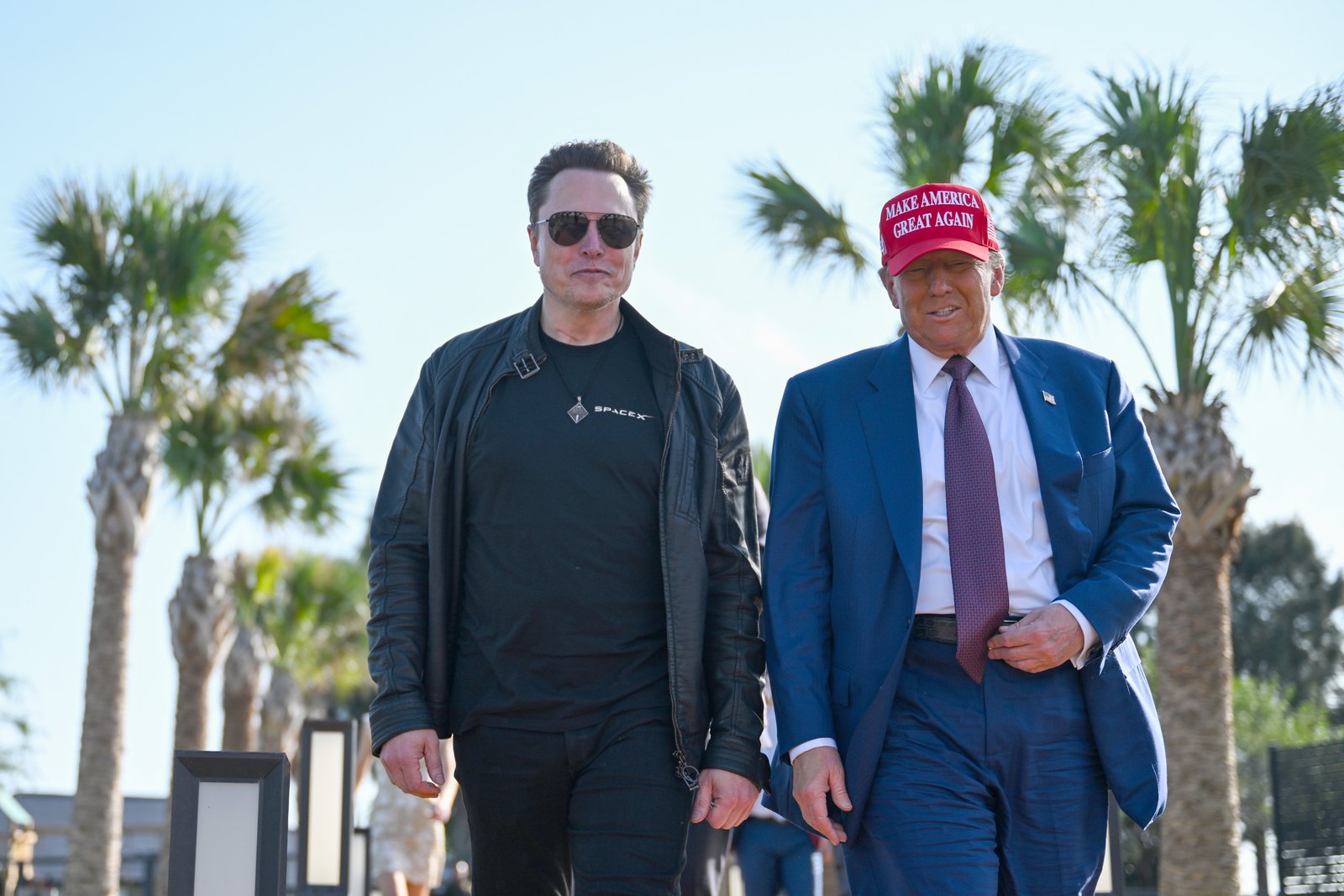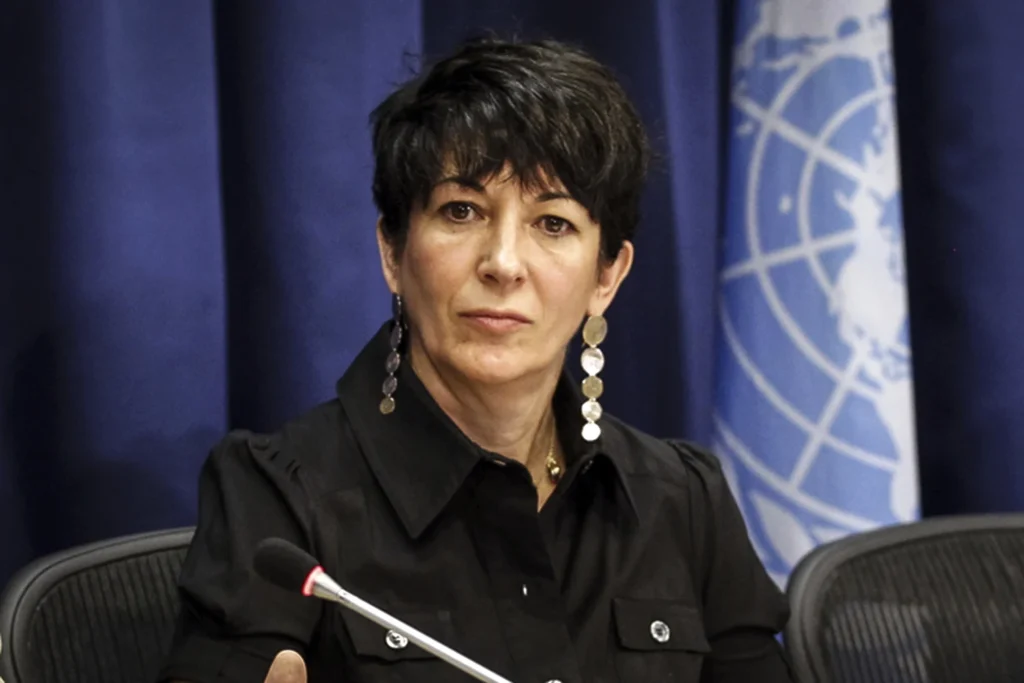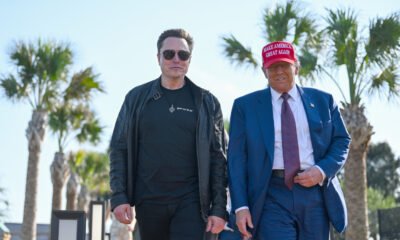Politics
Trump Tariff Plan Hits Major Legal Wall as US Court Blocks Sweeping Import Taxes
A federal trade court has struck down Trump’s blanket tariff strategy, calling it unconstitutional and setting up a high-stakes legal and economic showdown.

In a stunning legal blow to one of former President Donald Trump’s most aggressive economic strategies, a U.S. trade court has blocked the sweeping global tariffs that had become a hallmark of his trade war. The decision casts serious doubt on the future of Trump’s tariff regime and sets the stage for a prolonged legal and political battle.
The Court of International Trade ruled that Trump overstepped his authority by using the International Emergency Economic Powers Act (IEEPA) to justify broad-based tariffs on nearly every U.S. trading partner. The court emphasized that Congress, not the president, holds the power to regulate foreign trade, dealing a critical blow to Trump’s use of emergency powers for economic policy.
The Trump administration has downplayed the ruling, immediately requesting a stay of the court’s order while it prepares an appeal. White House trade adviser Peter Navarro suggested that alternative legal pathways still exist to impose tariffs, while economic adviser Kevin Hassett assured media that the decision would not derail ongoing trade negotiations.
“This is just a hiccup,” Hassett said. “We’re confident the ruling will be overturned.”
However, the court’s decision has already rattled international trade discussions. Analysts warn that it could undermine the U.S.’s negotiating power, especially during a sensitive 90-day pause on tariff escalations that Trump had introduced to encourage trade deals. The ruling also complicates newly agreed U.S. trade arrangements, including a recent deal with the United Kingdom.
The lawsuit was brought by the Liberty Justice Center on behalf of small businesses, along with a coalition of U.S. states including New York. Attorney General Letitia James hailed the decision, stating: “No president has the power to single-handedly raise taxes. This is a victory for the Constitution.”
Markets responded positively to the news. U.S. and Asian stock markets saw modest gains, with businesses and investors welcoming a potential return to predictable trade policies.
What happens next?
While the blanket tariffs are on hold, targeted tariffs on steel, aluminum, and vehicles remain unaffected, as those were imposed under separate laws related to national security. The Trump administration still has options, including invoking a section of a 1930 trade law that allows tariffs of up to 50% on imports from countries that “discriminate” against the U.S.
Trump can also impose limited emergency tariffs — up to 15% for 150 days — if he proves that the country’s trade balance presents an immediate threat, though such a move could trigger new legal scrutiny.
For now, importers will continue paying tariffs unless the court order is upheld through appeal. If Trump’s legal team fails to overturn the decision, the U.S. Customs and Border Protection agency could eventually issue refunds to affected businesses.
This ruling marks a significant moment in Trump’s second-term agenda, highlighting the limits of executive power and raising questions about the long-term sustainability of his America-first economic doctrine.
Health
Salmonella Scare in Eggs Sparks Multi State Health Alert and Massive Recall
Over 1.7 million eggs recalled across nine states as 79 people fall sick and 21 are hospitalized in salmonella outbreak

A widespread salmonella outbreak linked to recalled eggs has raised serious public health concerns across the United States. According to the Centers for Disease Control and Prevention (CDC), at least 79 individuals in seven states have fallen ill, with 21 hospitalizations reported as a direct result of exposure to contaminated eggs.
The August Egg Company, at the heart of the recall, has voluntarily pulled back approximately 1.7 million brown cage-free and organic eggs distributed between February 3 and May 15, 2025. These eggs were sold in major grocery chains including Walmart, Save Mart, Safeway, Smart & Final, and Food 4 Less, spanning across states like California, Nevada, Illinois, Indiana, Nebraska, New Mexico, Washington, Arizona, and Wyoming.
The sell-by dates on the affected eggs range from March 4 to June 19, 2025, and consumers are being strongly urged to check their fridges. The CDC recommends disposing of the recalled eggs immediately or returning them to the store of purchase. Furthermore, any surfaces or utensils that may have come into contact with these eggs should be thoroughly disinfected.
What Is Salmonella and Why Is It Dangerous?
Salmonella is a bacteria that can cause severe foodborne illness. According to the FDA, symptoms typically begin 12 to 72 hours after infection and include fever, diarrhea, vomiting, abdominal cramps, and dehydration. While most people recover within a week, the infection can become severe or even fatal in young children, older adults, pregnant women, and those with weakened immune systems.
The bacterium can also lead to bloodstream infections if not treated in time, and in rare cases, death. In light of the current outbreak, the CDC has stressed the importance of safe egg handling practices, especially as summer gatherings and picnics increase the risk of improper storage and preparation.
Keeping Eggs Safe – What You Can Do
To reduce the risk of foodborne illness, consumers are advised to:
- Buy only refrigerated eggs and inspect for cracks or dirt before purchasing.
- Refrigerate eggs at or below 40°F (4°C) immediately after bringing them home.
- Cook eggs until both the white and yolk are firm, and avoid runny preparations.
- Use pasteurized eggs when making recipes that call for raw or undercooked eggs (e.g., Caesar dressing, homemade ice cream).
- Wash hands, surfaces, and utensils thoroughly with soap and hot water after handling raw eggs.
- Use insulated coolers and ice packs when transporting egg-based dishes outdoors.
This incident also highlights the broader issue of rising food recalls in 2025, ranging from bacterial contamination to allergen mislabeling. As food sensitivities and immune vulnerabilities increase in the population, both awareness and prevention are key.
Politics
Elon vs Trump Feud Threatens $48B in Space Contracts and Careers
From Musk’s contract empire to Trump’s threats, their clash could backfire—but the US isn’t ready for a space blackout

Elon Musk, the world’s richest person and CEO of SpaceX and Tesla, openly criticized President Trump’s $2.4 trillion tax-and-spending bill as a “disgusting abomination.” Trump retaliated by threatening to terminate federal contracts and subsidies for Musk’s companies—moves that could scrape $48 billion from space, satellite, and defense programs . On X, Musk escalated by threatening to “decommission” SpaceX’s Dragon spacecraft, though he reversed course after backlash This isn’t a casual Twitter spat—it’s a high-stakes standoff with real-world consequences.
SpaceX sits at the heart of U.S. space and defense infrastructure. It ferries astronauts and cargo to the ISS, runs mega satellite constellations via Starlink, and is the Pentagon’s favored military satellite launcher . Alternative providers—Boeing, Rocket Lab, Blue Origin—are stepping up, but they’re still playing catch-up Musk’s government contracts aren’t just beneficial—they’re essential. Messing with them risks disrupting NASA missions, national defense, and connectivity for remote communities.
—The path forward: temporary retreat or lasting damage?The Wall Street Journal reports that Musk’s companies could lose nearly $48 billion in contracts if Trump follows through . Meanwhile, Tesla stock tumbled ~14%, and even Trump Media shares sank following Musk’s public jabs Yet two signs of calm are emerging: Musk wiped his most provocative X posts and paused the Dragon decommission threat . Trump also publicly softened, saying he “wishes [Musk] well,” though hinted review of contracts might still be fair Still, legal experts warn this standoff could become a precedent for politicized contracting, potentially dragging public services into personal vendettas.
—What it means for the country
National security and space exploration are at stake. SpaceX missions are integral to U.S. presence in orbit. A paralyzed Dragon could halt ISS access. Starlink outages could disrupt frontline communications.
The PBS NewsHour calls this a “collision of personal vendetta and public goods,” while Wired warns that mass reliance on one private company makes the nation vulnerable
—Can common sense prevail?
The feud reminds us how precarious privatized public functions have become when billions and national missions depend on one person. Industry insiders like Bill Ackman have urged a cooling off; NASA and the Pentagon are quietly vetting alternative suppliers .
Lawmakers now face a choice: should political disagreements dictate space policy? Or should national interests demand a firewall between personal feuds and critical infrastructure?
Politics
Who Was Jeffrey Epstein and Why His Name Still Haunts the Rich and Powerful
From Wall Street wealth to the world’s most disturbing sex scandal, the life and death of Jeffrey Epstein remain one of America’s darkest mysteries.

Jeffrey Epstein was once known as a high-flying financier and socialite who moved comfortably among the world’s elite. But today, his name is synonymous with one of the most disturbing sex trafficking scandals in modern history. Even after his death in 2019, the shadows of Epstein’s crimes—and his high-profile connections—continue to ripple through politics, media, and law enforcement investigations.
Born in 1953 in Brooklyn, New York, Jeffrey Edward Epstein began his career in finance as a math teacher, later transitioning into banking. By the 1980s, he had made his way into the rarefied world of hedge funds, eventually establishing his own firm. Though his exact sources of wealth have long been a mystery, Epstein managed to build a sprawling network of powerful associates—from former presidents and royalty to billionaires and celebrities.
But beneath the glittering exterior was a far darker story. Epstein’s crimes came to light in the early 2000s when he was accused of sexually abusing underage girls at his Palm Beach mansion. In 2008, he took a controversial plea deal that allowed him to serve just 13 months in a county jail—most of it on work release—despite serious allegations of child sex trafficking.
That deal sparked public outrage and renewed investigations. In 2019, Epstein was arrested again, this time on federal charges for running a sex trafficking ring involving dozens of underage girls, some as young as 14. Prosecutors described how he lured vulnerable teens with promises of money and education, only to exploit them in a horrific web of abuse, often aided by powerful enablers.
Just a month after his arrest, Epstein was found dead in his jail cell under highly suspicious circumstances. Officially ruled a suicide, his death sparked conspiracy theories and deep public mistrust, especially since he had been taken off suicide watch days before. The cameras outside his cell reportedly malfunctioned, and guards admitted to falsifying records.
At the center of the public’s demand for justice are the Epstein files—a vast trove of documents, testimonies, and evidence that reportedly name several high-profile individuals. Many documents remain sealed, though some were released through lawsuits involving Ghislaine Maxwell, Epstein’s longtime associate who was later convicted of grooming and trafficking girls for him. She is now serving a 20-year sentence in federal prison.

One of Epstein’s most vocal accusers, Virginia Giuffre, claims she was trafficked to several wealthy men, including royalty and politicians. Her lawsuits brought global attention to the depth of Epstein’s crimes and the scope of his influence.
Despite his death, the Epstein scandal is far from over. Calls for full transparency have only grown louder, especially with renewed interest following Elon Musk’s claim that high-profile figures like the current US President are named in sealed files. The mystery around Epstein’s connections, the true reach of his criminal network, and the unanswered questions about his death continue to fuel global headlines.
What remains is not just a case of individual guilt, but a mirror reflecting the intersection of power, privilege, and impunity. And until the full truth comes out, Jeffrey Epstein’s name will remain one of the most haunting in modern American history.
-

 Personality6 days ago
Personality6 days agoDonald Trump’s net worth reveals the fortune behind the former US President and business mogul
-

 Entertainment5 days ago
Entertainment5 days agoJonathan Joss Shot Dead at 59 in Texas Tragedy His Husband Says Was Hate-Fueled Crime
-

 Entertainment7 days ago
Entertainment7 days agoTop 5 Oscar Moments That Shook Hollywood and the World
-

 Personality5 days ago
Personality5 days agoLionel Messi’s Net Worth Revealed and How the Football Legend Built His Multi-Million Dollar Fortune
-

 Tech1 week ago
Tech1 week agoTop 7 AI Tools Every Corporate Employee Should Use in 2025.
-

 Films5 days ago
Films5 days agoRobert Pattinson’s Top 5 Films That Showcase His Evolution from Teen Idol to Indie Icon
-

 Films6 days ago
Films6 days agoJames Gunn’s Net Worth Revealed How the Filmmaker Built His Fortune
-

 IPL5 days ago
IPL5 days agoRCB Finally Lifts the IPL Trophy After 18 Years of Heartbreak and Hope























